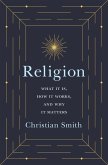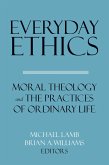Social scientists sometimes seem not to know what to do with religion. In the first century of sociology's history as a discipline, the reigning concern was explaining the emergence of the modern world, and that brought with it an expectation that religion would simply fade from the scene as societies became diverse, complex, and enlightened. As the century approached its end, however, a variety of global phenomena remained dramatically unexplained by these theories. Among the leading contenders for explanatory power to emerge at this time were rational choice theories of religious behavior. Researchers who have spent time in the field observing religious groups and interviewing practitioners, however, have questioned the sufficiency of these market models. Studies abound that describe thriving religious phenomena that fit neither the old secularization paradigm nor the equations predicting vitality only among organizational entrepreneurs with strict orthodoxies. In this collection of previously unpublished essays, scholars who have been immersed in field research in a wide variety of settings draw on those observations from the field to begin to develop more helpful ways to study religion in modern lives. The authors examine how religion functions on the ground in a pluralistic society, how it is experienced by individuals, and how it is expressed in social institutions. Taken as a whole, these essays point to a new approach to the study of religion, one that emphasizes individual experience and social context over strict categorization and data collection.
Dieser Download kann aus rechtlichen Gründen nur mit Rechnungsadresse in A, B, BG, CY, CZ, D, DK, EW, E, FIN, F, GR, HR, H, IRL, I, LT, L, LR, M, NL, PL, P, R, S, SLO, SK ausgeliefert werden.









